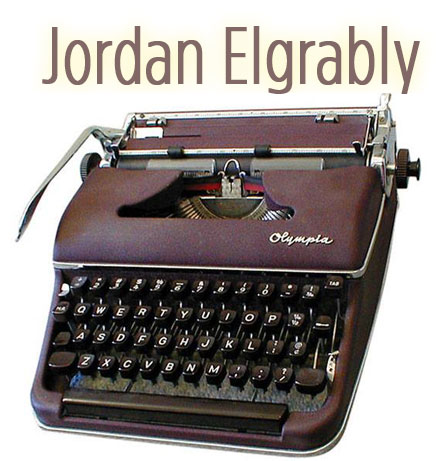Iraq strives mightily but only Algeria makes it to the final five
23 Feb., 2011 | Levantine Review | Jordan Elgrably
Ahmed in Mohammed Al-Daradji's Son of Babylon
This year several Middle Eastern countries submitted feature films to compete for nominations in the category of Best Foreign Film Oscar, among them Algeria, Turkey, Iraq and Israel (a country that rarely misses a chance to compete in the annual Oscar lottery). Egypt had skin in the game with Daoud Abdel Sayed's Messages From the Sea, and there were films from Greece, Azerbaijan and Iran (Mehdi Naderi's Farewell Baghdad). Only one film has a chance on Sunday.
Recently I caught a special screening of the Iraqi entry, Mohammed Al-Daradji's Son of Babylon. A feature shot mostly in the northern Kurdish provinces and starring a cast of non-actors, the film was developed in the Sundance Film Lab, so in a sense the filmmaker and his country derived support from the United States.
But watching Son of Babylon I could not help but feel sadness at just how much the U.S. has taken from Iraq. We have contributed to the nation's ruin, every bit as much as did Saddam Hussein, if not more.
Set in 2003, the film begins on a desolate empty plain, as a hijabi grandmother and her pre-pubescent grandson wander along a quiet highway. Despite their apparent poverty Ahmed is a naturally sunny kid, gregarious to a fault like most kids, and he loves his "dada" (Kurdish for grandmamma). Umm-Ibrahim, however, has not seen her son, Ahmed's father, in several years; she will walk to the end of the earth to find him if she has to. A gentle Arab truck driver is importuned to give them a lift as far as Baghdad where they can catch a bus to Nasriya. Several years before, Umm-Ibrahim received a letter that Ibrahim, who had been forced into military service in 1991 during the first Gulf War, was locked up in a Nasriya prison. It is never explained why she did not travel there earlier to see him.
Ahmed has never seen his father that he can remember, but can't wait to get to Nasriya.
I won't reveal the rest of the story, except to say that as a symbol "the son" of Babylon in pre-pubescent Ahmed seems fitting. He's young, he'll have to start over entirely by the end of the film and his country is in chaos. However, one Iraqi American I spoke to who had seen a special advance screening of the film, and who had left Iraq himself to emigrate to the U.S. when he was about Ahmed's age, expressed disappointment with the film. He said it was just too bleak, the story seemed insufficient to the subject matter and it would not really give Americans the right picture of Iraq.
Paris-based Algerian director Rachid Bouchareb
I disagree, for Son of Babylon is a film that is narrated entirely from Iraqi perspectives. Whatever quarrel you may have with its structure or its characters, or the dénouement, for American viewers this film is a must-see if for no other reason than to have that light turned on, to experience an "aha!" moment. We've never seen Iraq exclusively from an Iraqi viewpoint, and we need to. We should see five, ten, twenty films out of Iraq, and out of Afghanistan and Iran, for that matter, and films made by Palestinians and Syrians, and every other Middle Eastern country underrepresented in this global marketplace.
Turkey's entry, Bal, or Honey, reminded me of a minor Andrei Tarkovsky étude; it had moments of beauty, but never brilliance. Set in the Turkish countryside and directed by Semih Kaplanoglu, it too is about a boy, and a father who goes missing. But the filmmaker is in love with the camera and nature, far more than his characters. As a result the film becomes dreary and sad, without quite tugging at our heartstrings. Bal may be too enigmatic and too Turkish to transcend the limitations of cultural borders.
Rachid Bouchareb's Outside the Law is a much larger canvas, and will remind Academy voters of America's postcolonial experience in Vietnam; in some ways it is a Hollywood shoo-in, because the film is more a shoot 'em up than an arcane political thriller—more Eastwood than Costa-Gavras. Set in the post WWII world of French-occupied Algeria and France, we follow the distinct journeys of three Algerian brothers during the protracted struggle in which the French violently try to hang on to their colony, and the Algerians struggle for their independence. Partisan intrigue includes French spying for the Algerians, Algerians hurting their own people to help the French and many innocent victims caught in the middle.
Bouchareb is a filmmaker who favors the underdog, but does not paint his anti-heroes in two-dimensional tones. Whether you like them or not, as characters, all three of the brothers—the good, the bad and indeed, the war-scarred ugly—inspire empathy. (They also prompt some skepticism when it comes to the casting choices, because actors Jamel Debbouze, Roschdy Zem and Sami Bouajila look anything but related.) Having beaten all its Middle Eastern competitors for the nomination, Outside the Law would normally stand a chance among the five foreign films nominated, out of more than 50 submitted, but considering the enormous popularity of Spanish star Javier Bardem, it's unlikely Bouchareb's film will beat Alejandro González Iñárritu's Biutiful for the gold.*
* Both films lost in the end to Susanne Bier's In a Better World.



